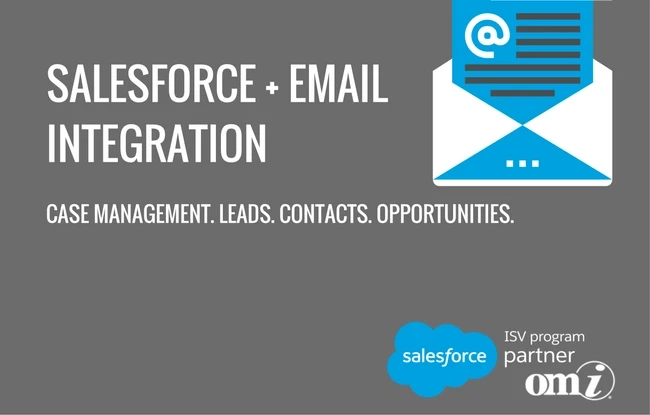No matter the nature of your business, the industry you operate in, or the scale of your operations, every organization requires a robust structure. Companies are divided into departments, each with its own hierarchy, and team members have their own set of tasks. This structure enables the organization of a logical workflow and harnesses the expertise of each employee. However, achieving this requires a stable and reliable exchange of information, which extends beyond individuals and departments. While you may already be using CRM software, have you considered integrating it with email for your employees?
Collaboration between marketing and sales departments, despite their distinct roles, is beneficial and leads to excellence. The same applies to combining email marketing with CRM platforms. Both tools are powerful assets for your business, but their integration creates an even more potent combination.
Today, we will explore the numerous benefits and strategies of integrating Salesforce with email marketing. Additionally, we will delve into its technical implementation.
The Significance of Email Marketing
Email marketing is often underestimated and considered outdated, but this perception couldn't be further from the truth. According to Statista's research, the average return on investment (ROI) for email marketing is $42 for every $1 spent, making it one of the most profitable marketing activities.
Email marketing helps establish and nurture relationships with current and potential clients. Regular communication builds credibility and trust. Moreover, it is highly customizable, allowing you to personalize emails for specific customer segments or individuals.
Mobile-friendliness is another crucial aspect. Users can engage with your brand through emails on their smartphones. In fact, according to Litmus, 46% of all email opens are from mobile devices.
In summary, email marketing remains a viable option in 2023, and its effectiveness can be enhanced through Salesforce integration.
How Do Email Marketing and Salesforce Collaborate?
Salesforce can augment your email marketing efforts in several ways:
Customer Behavior Tracking: Salesforce enables the tracking of customer behavior and activity history, which can be utilized to personalize email messages. For example, if a customer has previously purchased a particular product, Salesforce can initiate an email campaign featuring related items or incentives.
Email Marketing Automation: Using Salesforce, you can automate email workflows such as welcome emails, abandoned cart emails, and follow-ups. This saves time and money while ensuring timely and relevant communication with clients, reducing the manual effort involved in these operations.
Customer Info Syncing: Integration between Salesforce and email marketing tools like Mailchimp allows for automatic syncing of contact lists. This ensures that emails are sent to the correct recipients, avoiding errors.
Analytics Capabilities: Salesforce can track campaign results, including open rates, click-through rates, and conversion rates. With this data, you can improve your email marketing by optimizing email copy or subject lines, among other factors.
Strategies for Email Marketing Integration
Let's explore some effective strategies for integrating email marketing with Salesforce. While more than 80% of companies worldwide utilize email marketing, only a small percentage integrate it with a CRM platform.
Integration can take your email campaigns to the next level. Consider implementing the following tactics:
Social Media + Email: Social media is a powerful tool in digital marketing. Incorporating "SM share" buttons in your emails boosts click-through rates by more than 150%. Additionally, focusing on specific customer groups based on their social media profiles promotes greater customer loyalty.
Salesforce Email and Marketing Analytics: Salesforce provides a suite of analytical tools to effectively manage marketing campaigns. While many small and medium-sized businesses may not require advanced software, simple tools like 366 Degrees can deliver results. Utilizing analytics is crucial for measuring campaign success and evaluating the benefits of email marketing.
Salesforce Automation for Email Campaigns: Automation is key to maintaining a continuous and efficient workflow. Manual syncing and logging of emails takes time and can become cumbersome when considering factors like vacations, sick leave, and human error. The larger the business, the more challenging it becomes to manage these manual tasks.
Automating email integration through Salesforce resolves these issues and allows your employees to focus on more critical matters at hand. It ensures that email data remains up-to-date and complete across all departments.
These examples highlight how Salesforce email marketing can be implemented through integration, but there are many more possibilities to explore.


